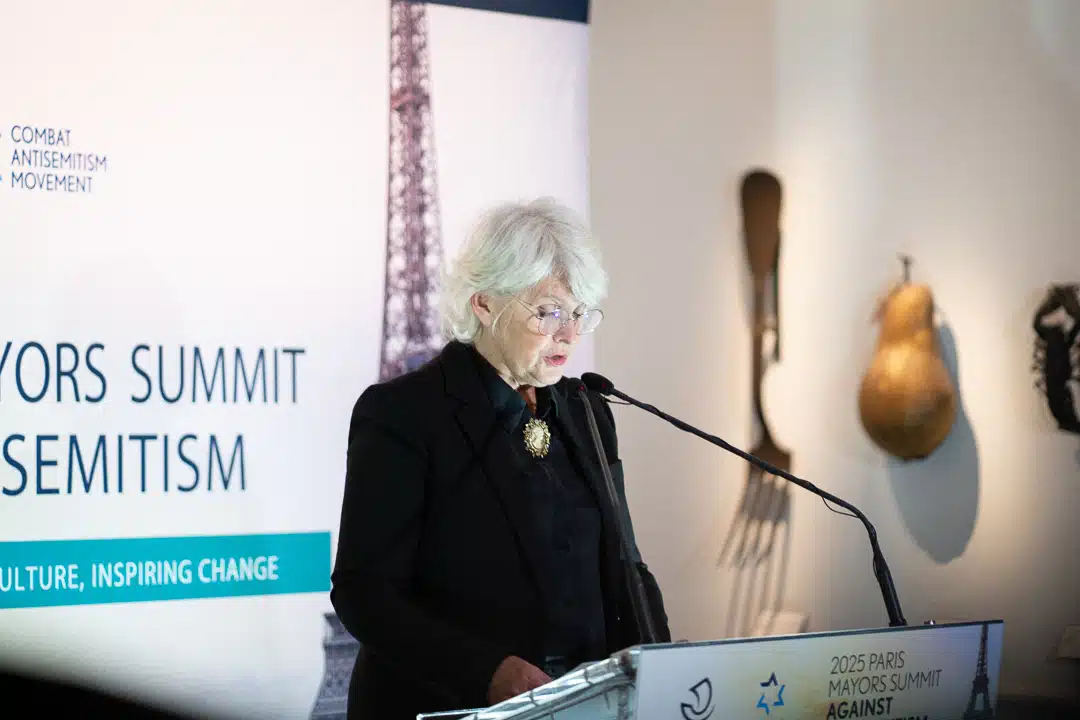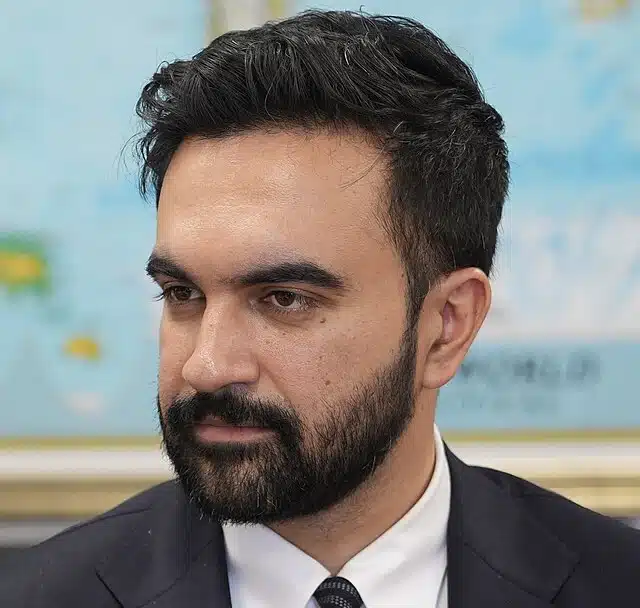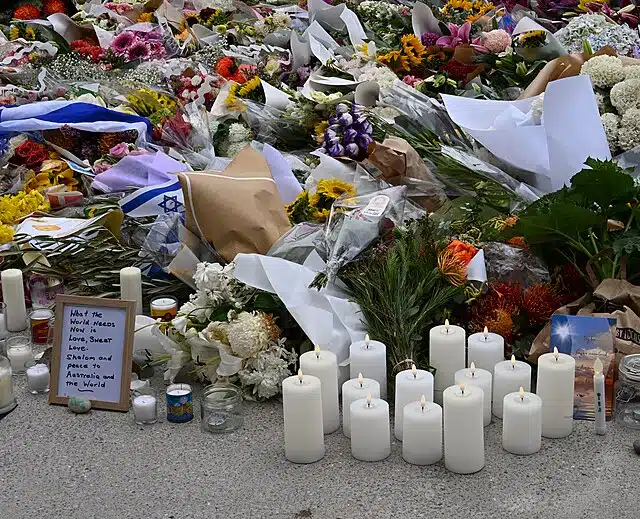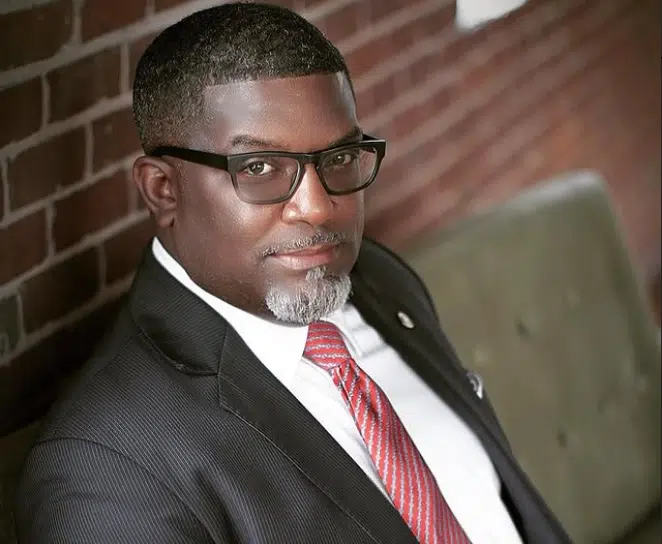
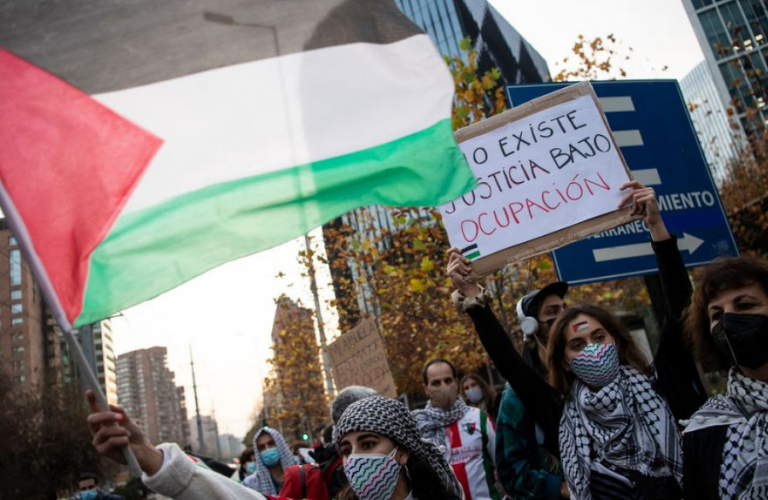
Chilean Jewish Official Decries Antisemitism Spike During Recent Israel-Gaza Crisis
Almost no Jewish community around the world was untouched by the surge of antisemitism that accompanied the flare-up of Israel-Gaza violence in May, and this included Chile, where blatant Jew-hatred was on display both on the streets and online.
B’nai B’rith Chile President Boris Kisiliuk spoke with the Combat Antisemitism Movement (CAM) to share his insights on the situation in Chile, which has the largest Palestinian population outside the Arab world.
The following transcript has been edited for length and clarity.

During the recent Israel-Gaza fighting, Jewish communities worldwide experienced a disturbing rise of antisemitic incidents. How was Chile’s Jewish community affected?
The antisemitic actions culminated in Chile when the Palestinian Federation organized a march in Santiago, our capital, protesting the Israel-Gaza conflict. Antisemitic chants and statements were heard, mixing antisemitism with anti-Zionism.
It is important to note, for example, that Daniel Jadue, the presidential candidate from the Communist Party, refers to the Jewish community in Chile as the “Zionist community of Chile.”
As Israel-Gaza violence flared, the head of the Palestinian community in Chile, Maurice Khamis, gave an interview that included antisemitic rhetoric. Which of his statements were most troubling, and how should the Chilean Jews respond?
Mr. Khamis made a number of antisemitic assertions, including –
“Our political adversaries, sorry our enemies, which is Israel through the embassy here, were going to criticize us.”
“And how they handle the media – because that’s the truth.”
“And they manage the political lobby in the executive.”
“We prefer not to give them any chance to victimize themselves.”
“I’m with Hamas, I absolutely support it, because Hamas is a resistance movement.”
“Because they run the United States. It is unsustainable … In fact, the new US secretary of state is Jewish.”
With these comments, the president of the Palestinian Federation revealed his hatred of Jews by using BDS rhetoric and supporting terrorist causes, such as Hamas.
How much of a problem is the BDS movement in Chile?
They have been working hard in Chile’s main universities, among them the University of Chile and the Catholic University, holding anti-Israel and anti-Zionist meetings.
Also, at the University of Chile, where the General Union of Palestinian Students is located, they sought to ban a student’s candidacy for a Student Federation post just because he was Jewish
There are proposals emanating from parliament to encourage BDS by legal means, seeking to limit imports of products originating from territories that have been disputed since 1967. The most recent of these bills was presented to parliament in early June, with the support of members from different political parties.
Finally, there have been efforts by municipal authorities to promote BDS measures. The most representative case was Valdivia, the capital of the Los Ríos Region. There, the attempt failed, due to the fight in court that the Jewish community of Chile gave.
In terms of fighting antisemitism, how supportive is the Chilean government of the Jewish community? And how does Chilean society as a whole treat the issue?
The government tries to maintain a balance between the Palestinian and Jewish communities, as well as between the Israeli Embassy and the Palestinian representation in Chile, although our country usually votes against Israel in international organizations.
In our society, there is great ignorance about the Israel-Palestinian conflict. The Palestinian position gets much greater public exposure than the Israeli one.
There has been increasing pressure from the Palestinian community, seeking support in the political sector by using images from other conflicts or manipulating real images to only show one-sided Palestinian pain.
In general, Chileans tend to champion the weaker side in causes and view Israel as the “oppressor” and the Palestinians as the “oppressed.” Baseless claims regarding the so-called “proportionality of force” principle are also used to criticize Israel.
How prevalent is online antisemitism in Chile and what can be done to address the phenomenon?
On social media, harassment is a daily issue, and even more so in times of tension in the Middle East. Any comment by a Jew or pro-Israel individual is fiercely attacked, and these attacks are amplified, due to the disparity in numbers (in Chile, there are 450,000 Palestinians and 15,000 Jews).
We now have a working group that looks for antisemitic comments on social media to denounce them and try to get them removed.
We are constantly looking for a greater presence in discussion spaces, trying to highlighting the contributions of the Jewish community to culture and society.

